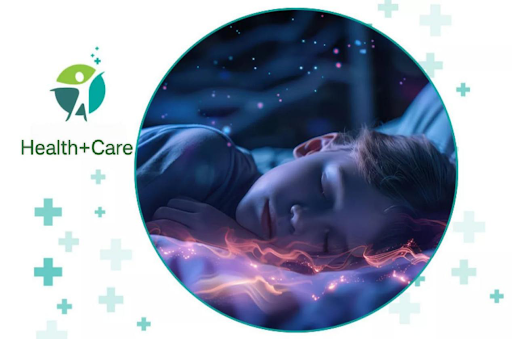

- Home
- Wellbeing+
- The Science of Sleep: Why It&# ...
Sleep is far more than just a nightly pause from our busy lives—it’s a cornerstone of health, just as vital as food, water, and air. In an age where busyness is glorified and late nights have become routine, science consistently tells us the opposite: quality sleep underpins mental clarity, emotional resilience, physical vitality, and overall well-being. When we sleep, our bodies heal, our brains process memories, and our immune defenses strengthen. Neglecting sleep not only diminishes performance but also invites chronic diseases. Prioritizing sleep is no luxury; it’s an essential act of self-care.
What Happens When We Sleep?
Sleep is a highly organized, dynamic biological process that renews mind and body throughout the night. We cycle through five distinct stages: Wake, N1 (light sleep), N2 (deeper sleep), N3 (deep restorative sleep), and REM (rapid eye movement sleep). Each has a unique function. Light sleep gently eases us into rest, preparing us for deep sleep phases where tissue repair, muscle growth, and immune function peak.
Deep non-REM sleep (N3) is crucial for brain development and memory consolidation, especially in children. REM sleep, associated with vivid dreaming, promotes emotional regulation and problem-solving skills.
Our hormonal symphony during sleep includes melatonin, which synchronizes our internal clock; growth hormone, vital for cell repair; and cortisol regulators that balance stress responses. Sleep is far from passive—it is an orchestrated act of regeneration vital for life.
Why Sleep Is a Biological Essential
Sleep is as fundamental to survival as food and oxygen. Unlike voluntary activities, sleep is involuntary, hardwired into our biology. Prolonged sleep deprivation can be as damaging as starvation, impairing critical bodily systems and increasing vulnerability to illness.
Adequate sleep bolsters immunity, balances metabolism, sustains cardiovascular health, and sharpens cognition. Chronic sleep loss elevates risks for hypertension, diabetes, depression, and cognitive decline. Sleep needs vary markedly through life: newborns thrive on 16-18 hours, toddlers on 11-14, children on 9-11, teens on 8-10, and adults on 7-9. Older adults often require less, but sleep quality remains paramount.
Sleep’s Role in Childhood Growth and Learning
For children, sleep is the foundation for growth, brain development, and resilience. Deep non-REM sleep triggers growth hormone release and aids immune system strength. It also solidifies learning and memory.
Sleep deprivation in kids can cause mood swings, concentration issues, weak immunity, and poor academics. Warning signs include irritability, frequent tiredness, difficulty waking, and recurrent illness. Snoring may signal sleep apnea, a serious disorder causing airway obstructions that fragment sleep and hamper development.
Consistent, quality sleep is one of the most powerful gifts to our children’s lifelong health.
Common Sleep Disorders
Sleep disruptions like nightmares, insomnia, night terrors, and parasomnias (such as sleepwalking) are often linked to genetics or stress and can affect emotional and cognitive health. Obstructive sleep apnea, indicated by loud snoring and daytime fatigue, requires medical diagnosis and treatment to restore restorative sleep and encourage healthy development.
Natural Ways to Enhance Sleep Quality
Simple evening rituals—like reading, gentle stretching, or relaxing music—help your brain associate these cues with winding down. Avoid heavy meals, caffeine, and screens before bedtime to protect melatonin production suppressed by blue light. Create a sleep-friendly space with cool temperatures, darkness, and quiet. Quality mattresses, breathable bedding, and soft lighting enhance comfort.
Herbal allies such as valerian, chamomile, passionflower, lavender, hops, lemon balm, tart cherry juice, and L-theanine (found in green tea) support relaxation through natural neurochemicals like melatonin, serotonin, tryptophan, and GABA.
Medication and Its Limitations
Though sleep medications can provide short-term relief, many carry risks of dependence, cognitive decline, and abnormal behaviors like sleepwalking or hallucinations. Whenever possible, natural and lifestyle approaches are preferred for sustainable sleep health.
The Wide-ranging Benefits of Quality Sleep
Beyond feeling refreshed, sleep protects cardiovascular health by lowering heart rate and blood pressure during deep sleep, allowing the heart to rest and repair. It regulates blood sugar and inflammation, reducing diabetes and autoimmune disease risks. Sleep also strengthens the immune response, elevates energy and attention, and enhances mood, memory, and learning—critical for success in all areas of life.
The Hidden Dangers of Sleep Deprivation
Persistent lack of sleep elevates stress hormones, promotes inflammation, and damages blood vessels—major contributors to heart disease, stroke, and depression. It disrupts hormonal control of appetite, often leading to overeating and weight gain. Attention, coordination, and productivity suffer, increasing accident risks.
Unchecked sleep deprivation can cascade into mental, emotional, and physical hardships, making early recognition and intervention vital.
Practical Tips for Better Sleep Every Night
Adopt a “tech-free” hour before bed to shield melatonin production from blue light interference. Go to bed and wake at consistent times to regulate your internal clock. Engage in calming pre-sleep rituals—reading, stretching, or gentle music—to signal your brain that rest is near.
Prioritizing these routines builds a foundation for deep, refreshing sleep essential to lifelong health and happiness.
FAQ: Science of Sleep
Why is sleep so important?
Sleep supports physical repair, brain function, immune health, hormonal balance, and emotional stability.
How much sleep do I really need?
Most adults require 7–9 hours nightly; children and teens need more, depending on age.
What happens if I don’t get enough sleep?
Chronic deprivation raises risks for heart disease, diabetes, mental health conditions, and impairs cognition.
How can I improve my sleep naturally?
Stick to regular sleep schedules, limit screen time before bed, create relaxing rituals, and optimize your bedroom for comfort.
Are sleep medications safe?
Many carry risks and are recommended for short-term use only; lifestyle changes are preferred for long-term health.
Investing in sound sleep is investing in vibrant life. At Dailywell, we encourage you to honor your body’s need for rest—the simplest act with the most profound impact. Sweet dreams!
Recent Posts
- Obsessive-Compulsive Disorder (OCD): A Human-Centered Exploration
- Protecting Your Gut: The Dailywell Guide to Understanding Gastritis and Gastropathy
- Comprehensive Insights into Rectal Cancer: Signs, Treatments & Future Perspectives
- Calm Your Pressure: Natural Ways to Control Hypertension Through Meditation and Lifestyle
- Understanding Acne: Causes, Effects, Treatments & Natural Remedies for Clear, Healthy Skin
Recent Comments
Archives
Search
All Tags
Search
Gallery






Recent Post
Obsessive-Compulsive Disorder (OCD): A Human-Centered Exploration
- January 24, 2021
- 4 min read
Protecting Your Gut: The Dailywell Guide to
- January 24, 2021
- 7 min read
Comprehensive Insights into Rectal Cancer: Signs, Treatments
- January 24, 2021
- 6 min read















No Comments